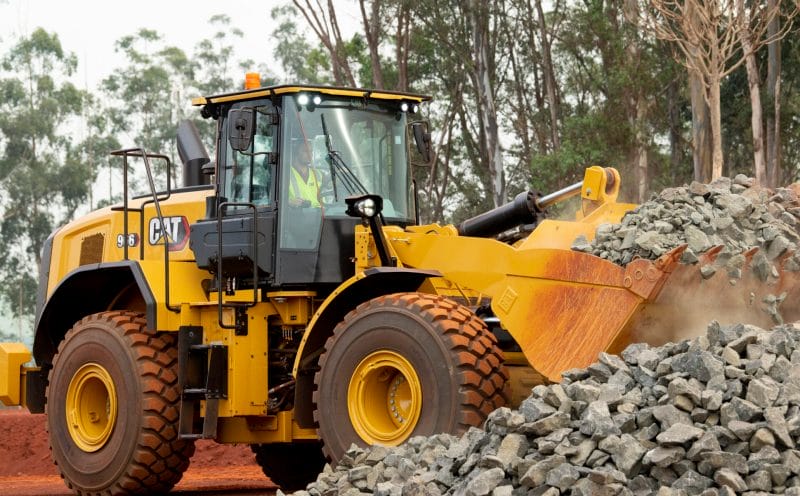A wheel loader, also known as a loading shovel, front loader, bucket loader, or scoop loader, is a versatile heavy equipment machine commonly used in construction, mining, agriculture, and other industries. Its primary function is to load materials into trucks, transport materials around a site, and perform various types of earthmoving tasks. Here’s a detailed look at what a wheel loader does and why it is well adapted to its work:
Functions of a wheel loader
- Material handling: Wheel loaders are primarily used for lifting and moving materials such as soil, gravel, sand, debris, and other bulk materials. They are equipped with a large front-mounted bucket that can scoop up, carry, and dump materials.
- Loading trucks: One of the primary tasks of a wheel loader is to load materials into dump trucks for transportation. The high lift capability of the loader’s boom allows it to efficiently fill the truck beds.
- Earthmoving: Wheel loaders can be used for digging and leveling ground, removing debris, and preparing job sites for construction.
- Site preparation: Wheel loaders are used in site preparation tasks, including clearing vegetation, grading surfaces, and spreading materials like asphalt and concrete.
- Agricultural tasks: In agriculture, wheel loaders are used to handle feed, manure, and other materials, as well as to maintain farm roads and facilities.

Adaptations and features
- Powerful engine and hydraulics: Wheel loaders are equipped with powerful engines and hydraulic systems that provide the necessary force to lift heavy loads and operate attachments. This makes them capable of handling tough materials and working in demanding environments.
- Articulated steering: Most wheel loaders feature articulated steering, which allows the front and rear sections of the machine to move independently. This provides better maneuverability, especially in confined spaces, and enables precise control when loading and unloading materials.
- High lift capacity: The design of the boom and bucket allows wheel loaders to reach high lift heights, making it easy to load materials into tall trucks or hoppers.
- Versatility with attachments: Wheel loaders can be equipped with various attachments such as forks, grapples, and augers, making them adaptable to a wide range of tasks beyond just loading and transporting materials.
- Durability and stability: Built with robust frames and durable components, wheel loaders are designed to withstand heavy use and harsh conditions. Their large wheels and balanced weight distribution provide stability, reducing the risk of tipping over during operations.
- Operator comfort and safety: Modern wheel loaders are equipped with ergonomic cabs, providing operators with comfort during long working hours. Features such as air conditioning, adjustable seats, and advanced controls contribute to operator efficiency and safety. Additionally, many wheel loaders include safety features like backup cameras, automatic braking systems, and rollover protection structures.

